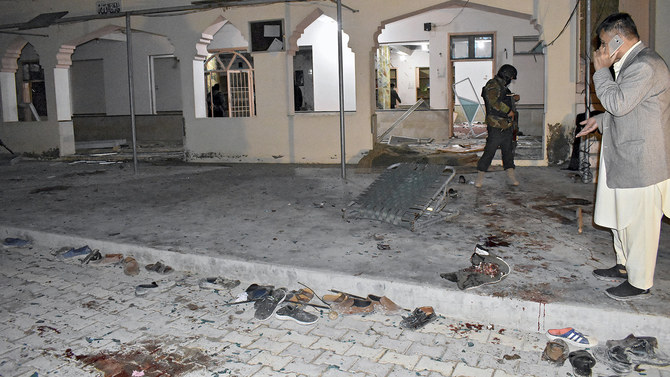LARKANA: At least 14 people, including a deputy superintendent of police, were killed in an explosion at a mosque in Quetta, the capital of Balochistan province, on Friday evening, officials said.
“The blast occurred during Maghrib prayers at a mosque in Ghousabad neighborhood,” Quetta police chief Abdullah Afridi told Arab News, adding that Deputy Superintendent of Police (DSP) Amanullah was among the victims.
Afridi said it was too early to say if the police officer was the target of an attack as “the nature of the blast has yet to be ascertained.”
The injured “have been brought to the (Quetta) civil hospital,” Dr. Waseem Baig, spokesman of the government-run health facility, told Arab News. He confirmed that 14 people died in the explosion and another 20 were injured.
The Pakistan Army’s military wing, ISPR, said in a Twitter post that Balochistan Frontier Corps personnel have reached the site and are assisting in search and rescue.
FC Bln troops reached Qta blast site. Area cordoned off. Joint search operation with police in progress.Injured being evacuated to hosp.
“Every possible assistance be given to police & civil administration. Those who targeted innocents in a mosque can never be true Muslim”, COAS.— DG ISPR (@OfficialDGISPR) January 10, 2020
On Tuesday, two people were killed and 18 others injured in another blast in Quetta, when a vehicle of the Frontier Corps (FC) was targeted with a bomb planted on the McConaghey Road of the city.
According to reports, the security personnel were on routine patrol when an improvised explosive device (IED) was detonated.
In November, two personnel of the security forces were killed and five others wounded in an explosion in Kuchlak area of Quetta.


























